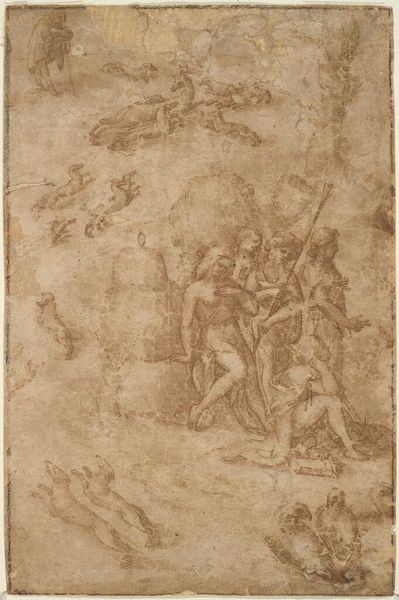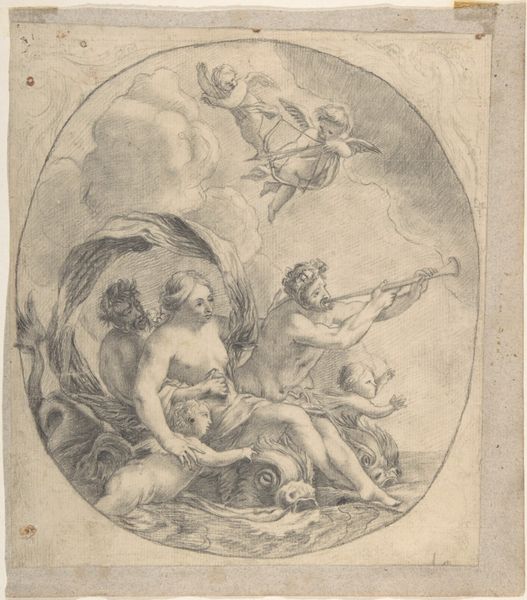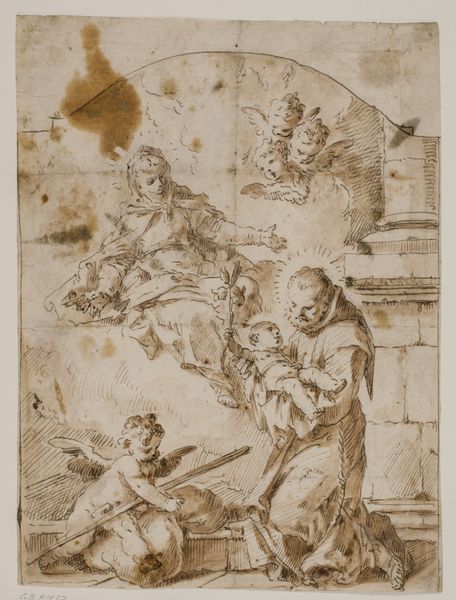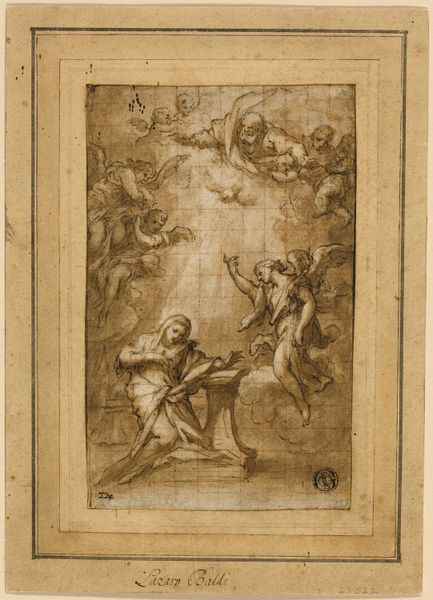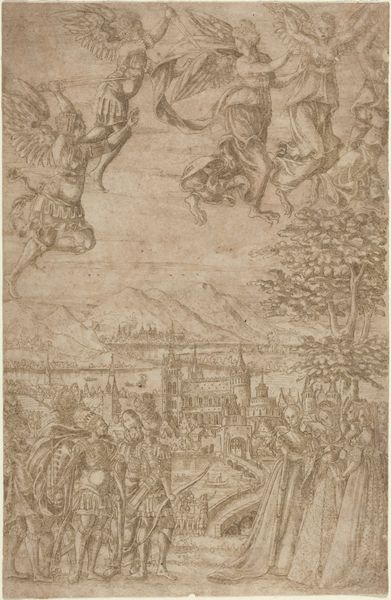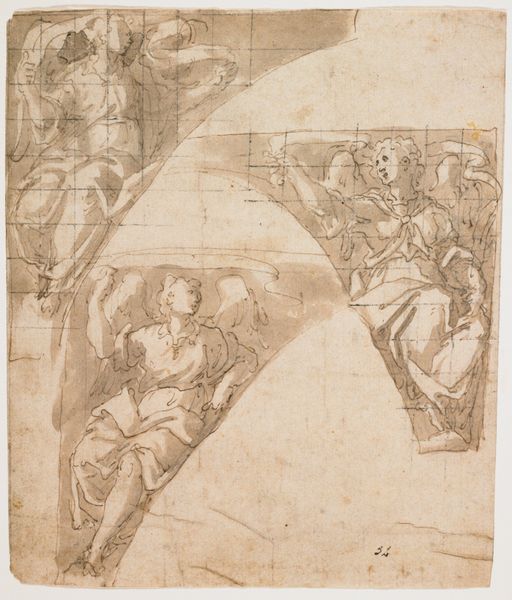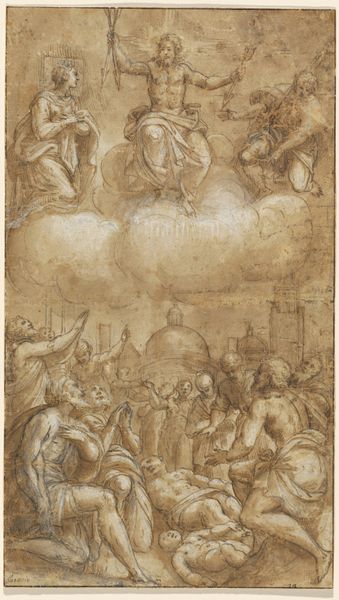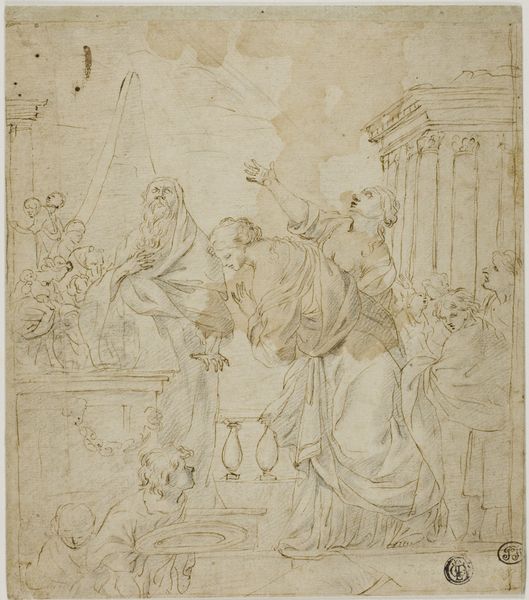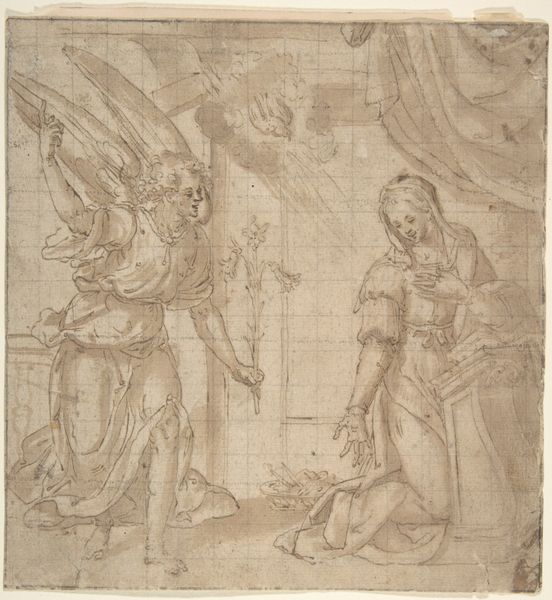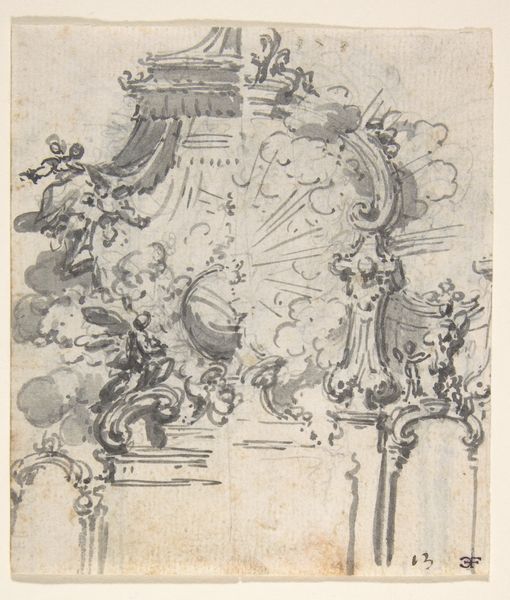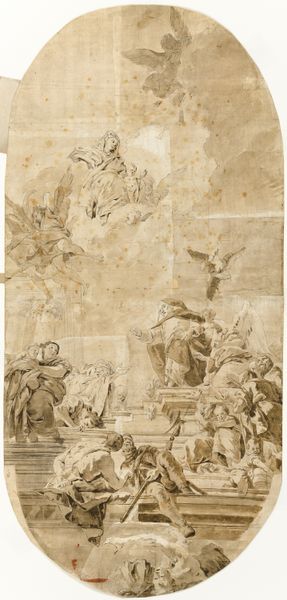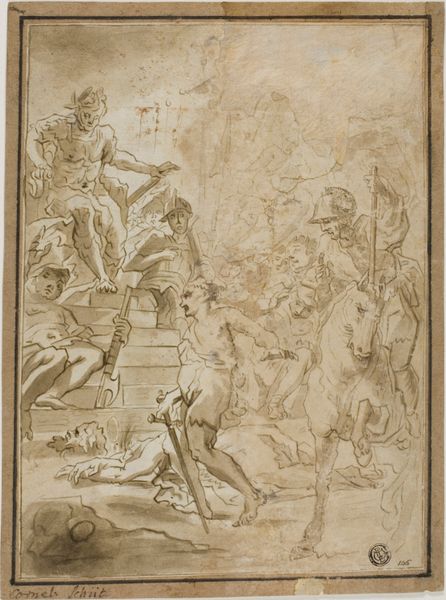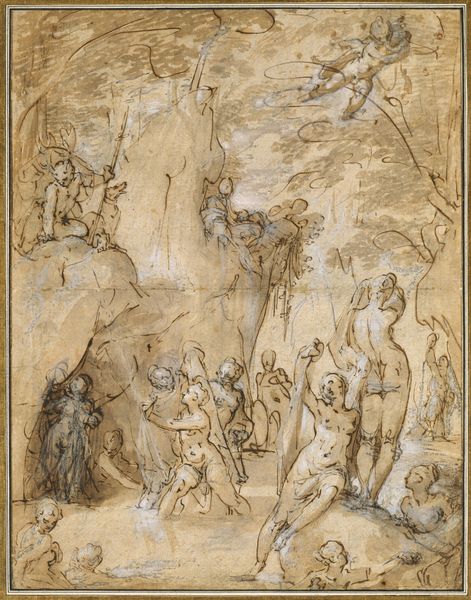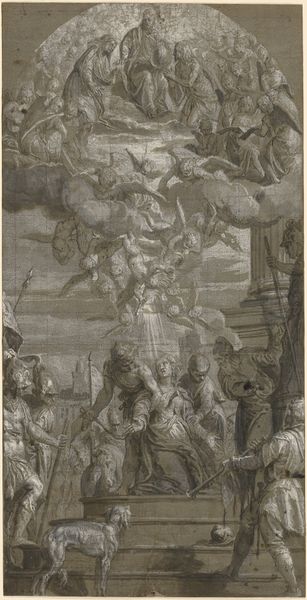
Study for the Omen of the Future Greatness of Augustus: Left Portion n.d.
0:00
0:00
drawing, paper, ink
#
drawing
#
landscape
#
charcoal drawing
#
figuration
#
paper
#
11_renaissance
#
ink
#
history-painting
#
academic-art
Dimensions: 372 × 295 mm
Copyright: Public Domain
Editor: This drawing, "Study for the Omen of the Future Greatness of Augustus: Left Portion," of unknown date, by Giulio Romano, made with ink, charcoal and paper… the figures and landscape feel quite classical. What draws your eye to it? Curator: Consider the cost of paper during the Renaissance. Drawings like this, particularly preparatory sketches, become fascinating. This wasn't simply art; it was an economic endeavor, supported by patronage, reflecting social structures. Who had access to such materials, such skill? Editor: So the paper itself is a signifier of power? Curator: Precisely. Look closely at the media too. Ink, charcoal – materials traded, processed, requiring skill to produce and utilize. How does Romano's control over these materials inform our understanding of his social standing and artistic labor? Do you notice how quickly and loosely he works? Editor: He's very confident! Is that what allowed him to use so little ink to communicate forms so quickly? It's really gestural in places. Curator: Absolutely. It wasn't only access but the skill born of practice and training that elevates it beyond mere craft. It reflects an entire system of apprenticeship and workshops. What about the subject, this omen? What sort of system must have been in place for artists like Romano to support narratives like that one? Editor: It all boils down to understanding the social conditions of the artist’s work and not just the artwork itself! Curator: Precisely! Understanding production reveals so much more about not just art but its connection to economic realities of its time.
Comments
No comments
Be the first to comment and join the conversation on the ultimate creative platform.
